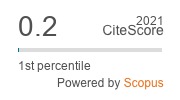An Artificial Intelligent System for Breast Cancer Sub typing: A Deep Learning Approach
DOI:
https://doi.org/10.17762/msea.v71i4.846Abstract
Classification of invasive Breast Cancer, based on source, into: Ductal and Lobular is an important clinical problem since it promises targeted therapy rather than a common treatment regime for all the patients. These predominant types exhibit highly distinguishable genomic characteristics with genes like TBX3 and GATA3 mutated in Ductal and Lobular cases respectively making them targets for the treatment. In this work we propose an AI system that exploits deep learning techniques and multiomics data for classification of patients based on tumor source. The proposed system is based on a hybrid optimization model - Hunger Customized Narrowed exploration (HCNAE) that combines the traditional Aquila Optimizer and Hunger Games Search in a conceptual way. The hybrid deep learning model pools optimized features from LSTM and MSE-CNN models that results in higher accuracy. The loss function of CNN is modified to reduce the classification losses. Finally, a comparative evaluation is performed to ensure that the proposed model is effective in identifying BC subtype based on the source.




